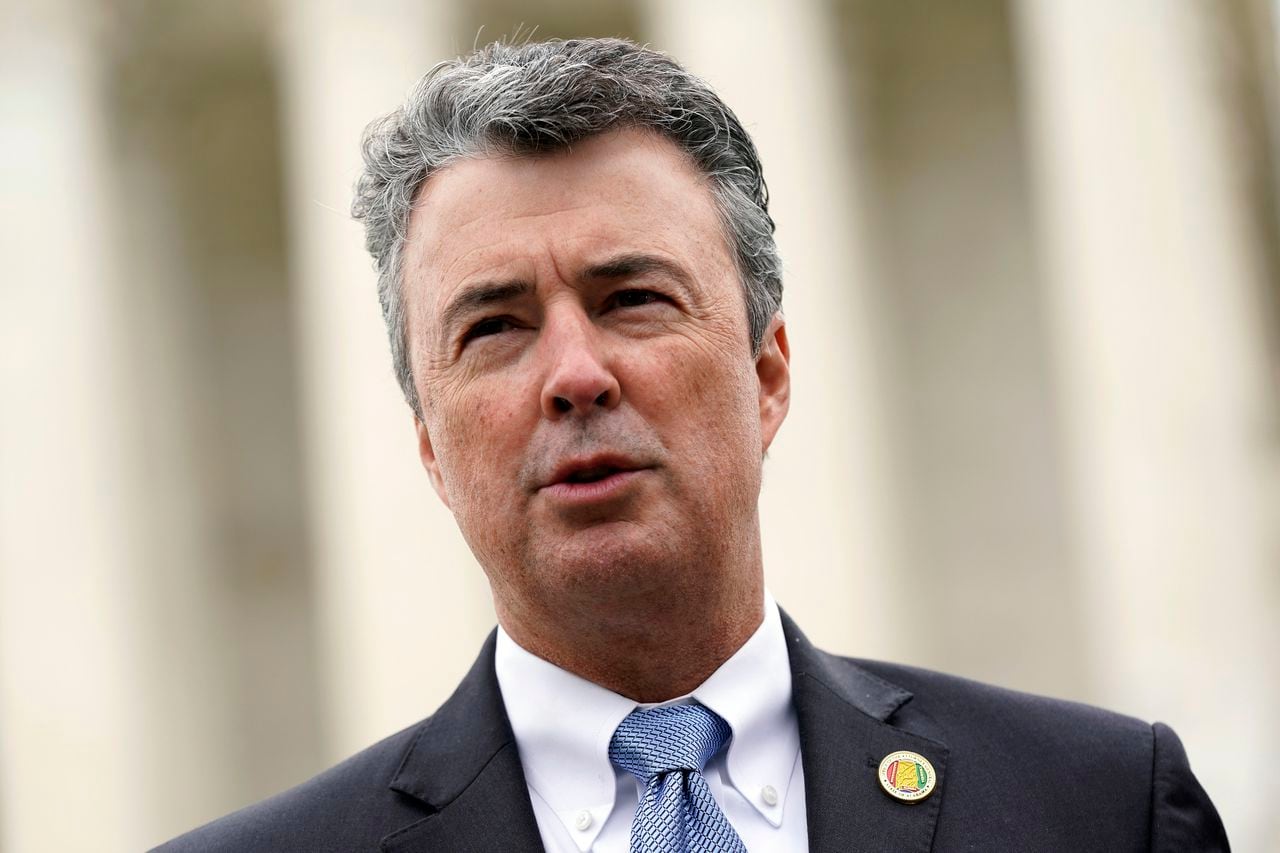Freeing former Montgomery cop who killed Greg Gunn âa sad dayâ for Alabama, lawmaker says
William Boyd was clear on Thursday: Gregory Gunn’s family and friends did not want to see the man convicted in his death released from prison.
“My reaction was, why did Steve Marshall come in and take the case from the District Attorney (Daryl) Bailey?” said Boyd, a friend of Gunn’s and spokesman for the family of the Montgomery man, who was shot and killed by former Montgomery Police Officer Aaron Cody Smith in 2016. “Why did the state feel as though it had to come in when justice had been served when the case went around?”
Attorney General Steve Marshall said in a statement Wednesday that he had reached a plea agreement with Smith, who was convicted of manslaughter in Gunn’s death and sentenced to 14 years in prison. The deal will lead to Smith’s release.
“That is not what we want,” Boyd also said. “Their response was, ‘well, it is not about what you want. We are making the final decision. It is not like we are calling you to the table to weigh your options. We feel this is the best route to go.’”
A message seeking comment was left with the Attorney General’s Office on Thursday.
WSFA reported on Wednesday that the AG’s Office took over the case from the Montgomery District Attorney’s Office without explanation. In a news release published Wednesday, Marshall said the case arrived at his office by way of appeal.
According to the Montgomery Advertiser, Smith, a white police officer, stopped Gunn, who was walking from a friend’s house at about 3 a.m. on Feb. 25, 2016. Smith asked Gunn, who was Black, to submit to a stop-and-frisk, but Gunn fled the scene. Smith chased Gunn, tased and beat him. Gunn later picked up a painter’s pole and charged at Smith, who shot at Gunn seven times.
Five bullets hit Gunn, who died near his family home.
The Montgomery District Attorney’s office charged Smith. A Dale County jury convicted Smith of manslaughter in 2019, sentencing him to 14 years in prison.
The Alabama Supreme Court rejected his appeal in 2022. Afterward, he continued to appeal his case, starting with a Rule 32 hearing.
Montgomery County District Attorney Daryl Bailey said in a statement reported by al.com that he was “very disappointed (Smith) is being released early, which is a privilege not afforded to most convicted killers.”
Gunn was incarcerated at Limestone Correctional Facility, according to the Alabama Department of Corrections.
Gunn’s family had been made aware of new developments in the case a couple of weeks ago based on accounts they read in the newspaper. Boyd said the family was brought to the attorney general’s office on Feb. 15 and given the news.
According to Boyd, the Attorney General’s Office was considering a host of options for dealing with the case. The family thought they would have some input regarding how the AGs Office would choose to pursue the case, but that was not to be.
“There were more options on the table, but the attorney general made the decision for the family against their will,” Boyd said.
Another option, which the family wanted to consider was to allow Gunn to follow through with his Rule 32 appeal, which could have resulted in a new trial for Smith.
“The Attorney General’s stance was that it could be where he could be found not guilty, and the manslaughter charge would go away,” Boyd said.
It could also be that there is not enough evidence to prosecute the case, Boyd said.
Montgomery lawmakers criticize deal
Several lawmakers also decided to weigh in on the decision to enter into a plea agreement.
Rep. Penni McClammy, D-Montgomery, said that she’s disappointed and that “it’s a sad day in this state and in this city” and said lawmakers and officials had “allowed a murderer to come back on the streets.”
“I hope they put this much attention on trying to release elderly and medically fragile people in prison,” she said, adding that while the attorney general’s office had the power to release Smith, she called it a “strong overreach.”
Rep. Kenyatté Hassell, D-Montgomery, also said that he felt it was an overreach by the Attorney General’s office, especially since the case had exhausted all appeals up to the Supreme Court.
“I heard he took it over, but I didn’t think he’d let him out,” he said. “I totally disagree with what the AG has done. I think it was a huge overreach.”
Hassell said Montgomery lawmakers wanted to know why Marshall had an interest in the case.
Rep. Phillip Ensler, D-Montgomery, said the decision only reinforces a “two-track system, or a system that helps them or is more favorable towards others,” adding that it can fall along racial lines at times, at a time that families are trying to get answers about incarcerated family members.
“To then have the person that committed that crime out on a much shorter basis than was expected — that just adds to that trauma and just makes the grieving process even harder,” he said.
Sen. Kirk Hatcher, D-Montgomery, said “the struggle I have with that is when we talk about meting out justice and doing things that will at least let people know that we are, that we respect life, everyone,” said Sen. Kirk Hatcher, D-Montgomery.
Rep. Reed Ingram, R-Pike Road, said that he did not have a comment as he only represents a small portion of Montgomery County. Rep. TaShina Morris, D-Montgomery, also did not have a comment.
Sen. Will Barfoot, R-Pike Road said he hasn’t been focusing on it.
A message seeking comment was left with Victims of Crime and Leniency (VOCAL), a victims advocacy group.
Jemma Stephenson and Alander Rocha contributed to this report.
